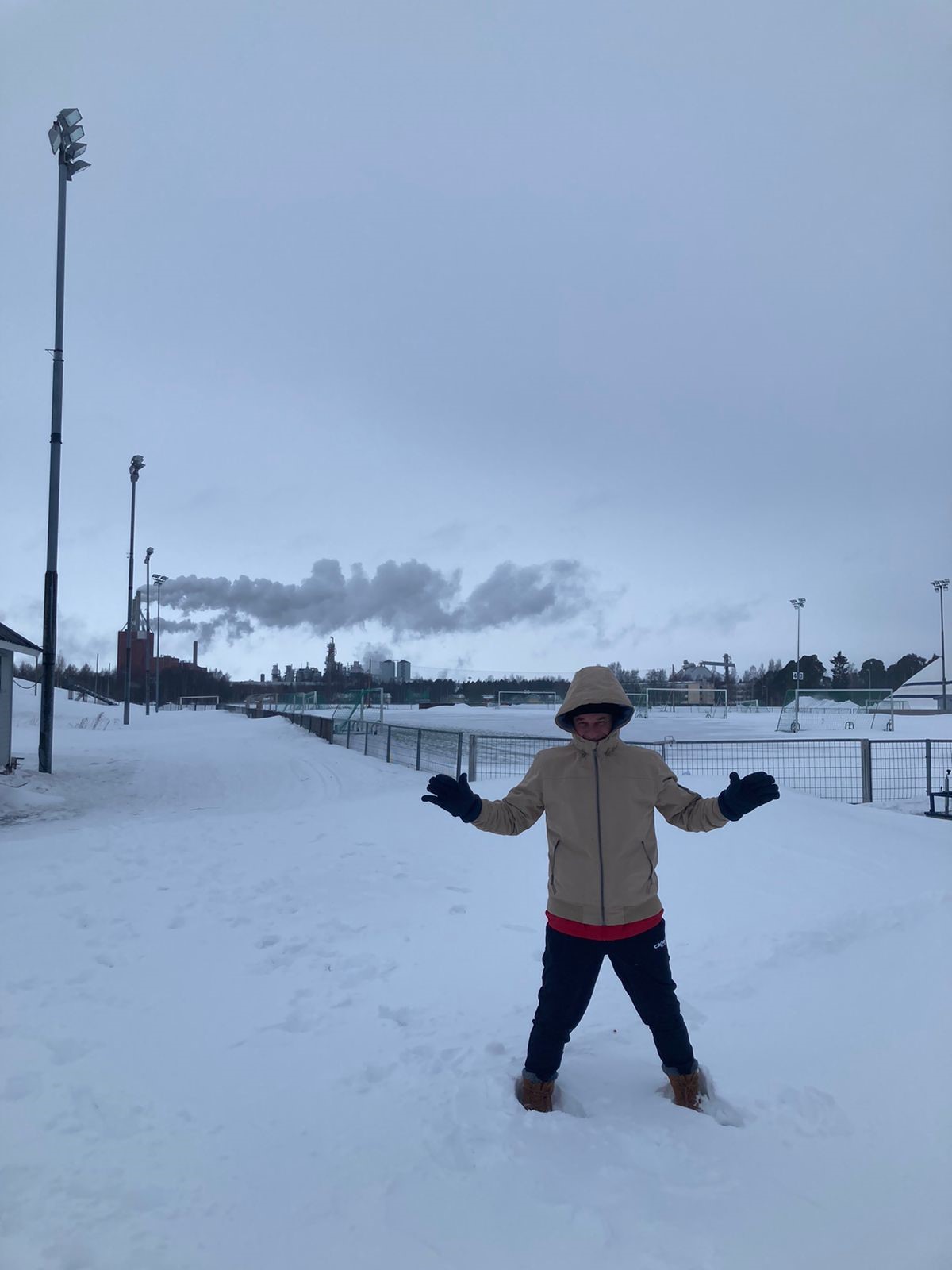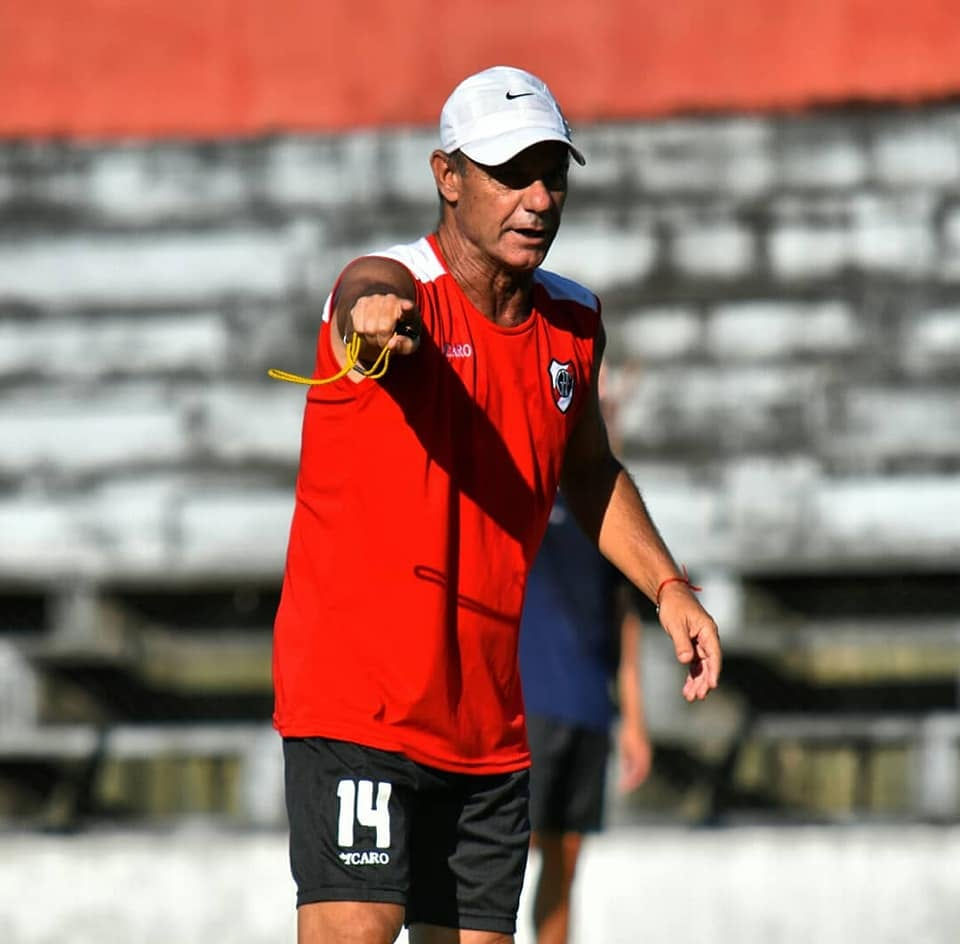Dario Labaroni, DT who left Misions to go to Finland: ‘Guarani means everything in my career’

Dario Labaroni has had a long career as a player and manager in Argentine football. It is an idol of Guaraní A. Franco where he has spent nearly 20 years in various stages.
evangelism, He now lives in Finland where a few months ago he went to train OTP in the Scandinavian country which plays in the third division. Over 12,000 kilometers away he talked about everything with him Nia today: Guaraní, New Habits, reviewed his career.
NEA HOY: Well, Dario, first of all, if you could give me a summary of your extensive career as a player.
Dario Labaroni: As a player I started at Villa San Carlos, and from there I went to Gimnasia where I was lucky enough to make my debut at the age of 17, I played for Argentinos Junior, San Telmo, Trinc Lauquen and from there to Guarani. Then I went to Huracan and two years later I returned to the sector where I ended my career.

NH: As a DT, when did you start?
Labaroni: As a DT I started at Guaraní Football School, then trained, then assistant Carlos Roldán, I was at Rosamonte as Maldonado’s assistant and that’s where I started directing. I went to former students, Huracán de Posadas, Guarani, Crucero, and San Martín de Tucuman when he was at Primera A, Cruz del Sur, and San Jorge.
NH: If we mark your stages as a player and as a DT player, what do you take from each stage, what are the memories?
Labaroni: The difference between a player and a DT is that each player has their own things, as a player you always try to give your best so that the coach takes you into account and as a DT you are more demanding to take into account the player, different stages but very similar. Both are stages of learning and go hand in hand. Sometimes it’s hard to cut through the player’s stage to become a DT. I have cases like Danny Garay or Pico Salinas that I took out in the lower grades, I played at first and then had to direct them in that category.
NH: What does Guarani mean in your career?
Labaroni: Guarani in my career has meant everything, not much but everything. I made myself known thanks to Guarani, as I played in the First Division. Many think I came from the hurricane here but it was the other way around. They opened doors for me in every way as a player, as a DT, and it is not in vain that I spent 17 years in the organization, 11 as a player and the rest as a DT.
NH: The Fringe is having a great moment in his fight for promotion, from a distance, how do you see it and what does it mean that he achieved a promotion?
Labaroni: Guaraní has players in the higher hierarchy to achieve the goal that I think he did not have in the other stages. Today he has names with a long career, and there are others who contribute to their experience without being too old, in good physical shape. I hope they enlighten them in order to get to promotion, I had Carlos (Marszuk) as a player and I know how responsible he was. The person who has been in charge during his career will continue like this, you as a coach too.
NH: Even though you were born in Buenos Aires, do you consider yourself to be just another missionary?
Labaroni: After 43 years in Mision with some ups and downs, the province is where I am, without denying my origin because I was born in Pereso, but my life has been spent in the red land and I consider myself an evangelist and people make me feel that way. Although everyone chooses me because my Buenos Aires accent hasn’t disappeared I consider myself a Misions because, as a Guarani, they are my life, my home, my home.
NH: How did you come up with this opportunity to mentor in Finland?
Labaroni: He came to Finland because of a combination of things, he was introduced by people who know my work in Santa Fe, who took into account the semi-finals of the Argentine Cup Which we played against First A teams like Rosario Central, Unión and Colón. We played games that everyone liked.

NH: Tell me in detail about the nature of training in the Nordic countries?
Labaroni: Training in this country is completely different, at four in the afternoon it gets dark. The maximum we’ve had since I arrived is -2°C and we have reached -20°C. Workouts are in closed, factory-heated fields, unrelated to the 40°C in Mission. Here the player is implemented terribly, it is very organized and everything is on time.
NH: Even though you’ve only been here for a short time, what can you tell us about the culture or the tradition?
Labaroni: The culture is very different from ours, everything works here, it’s always on time, people have great economic stability and you don’t see people in need and you don’t care about anyone. Culture is business, they are people like country: cool. Everyone finished their work and went home, we went out one day and didn’t see many people on the street. Not to mention what I miss when going to Costanera, it’s all under the snow here.
NH: How did you manage to adapt to training and exercises in football other than our stadium? Have you seen videos or talked to DT in the area?
LaBaroni: When I had the chance, I started getting to know her and asking for videos. For a week, I woke up at 6:30, prepared my mate and watched videos until late at night, stopping only at noon to eat. Today with the Internet, those who are not informed because they do not want to. Today I even give instructions in English and had no idea when I arrived.
Also at NEA today:
A vibrant match ended in a draw between Sol de America against Guarani Antonio Franco
For Ever debuted today at First National: Everything you need to know

Twitter fan. Beer specialist. Entrepreneur. General pop culture nerd. Music trailblazer. Problem solver. Bacon evangelist. Foodaholic.




